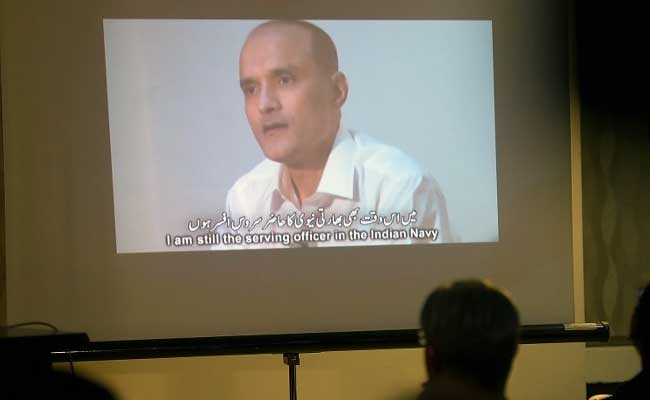India resorted to the World Court on Monday in order to bar Pakistan from executing an Indian citizen on charges of espionage.
India argued in a preliminary hearing at the UN court, formally known as the International Court of Justice (ICJ), that Pakistan violated the Vienna Convention on Consular Relations by denying the condemned man access to legal and other assistance from India. Pakistan was to respond later Monday.
Monday’s hearings focused on India’s request for so-called “provisional measures” that can be granted at short notice to ensure a dispute between states does not deteriorate during full ICJ proceedings, which typically take several years.
At the core of the dispute is the fate of Kulbhushan Sudir Jadhav, an Indian former naval officer who was arrested in March 2016 in the Pakistani province of Baluchistan. There has been a long-running conflict in Baluchistan between Pakistani security forces and a militant separatist movement.
According to Islamabad, Jadhav confessed to being tasked by India’s intelligence service with planning, coordinating and organizing espionage and sabotage activities in Baluchistan “aiming to destabilize and wage war against Pakistan”.
In April, a Pakistani military court sentenced him to death. No date was set for the execution. Pakistan has said Jadhav’s conviction and sentence remain open to appeal.
India’s representative at the ICJ hearing, Deepak Mittal, described the charges against Jadhav as “concocted” and his trial as “farcical.”
India claims that Pakistan breached a long-standing international convention on consular relations by not granting Indian officials access to Jadhav after his arrest last year.
“It is clear that Mr. Jadhav has been denied the right to be defended by a legal counsel of his choice. He has not been informed of his right to seek consular access,” Mittal said, adding that the conviction and death sentence appeared to be based on a confession made while “in captivity without proper legal representation.”
The case is likely to take months or years to resolve, so India is asking the world court to immediately order Pakistan to “take all measures necessary” to prevent Jadhav’s execution pending the final outcome.
The court’s president already has written to Pakistan urging it to take no action that could affect the hearings – effectively a request to prevent the death sentence being carried out.
Pakistani officials have said that Jadhav has the right to appeal to a military appeals court or petition the army chief for mercy. Also, under the constitution, Pakistan’s president could pardon Jadhav.
The Pakistani officials stated Jadhav has been linked to 1,345 deaths in acts of terrorism in Pakistan, using fake ID to make secret trips to Pakistan from Iran before his arrest in 2016.
The ICJ is the UN court for resolving disputes between nations, and its decisions are final and binding. However, it has no means to enforce rulings and they have occasionally been ignored.
In a similar dispute over the Vienna Convention in 1999, the ICJ ordered the United States not to execute a German national who did not get proper consular assistance, but the man was put to death regardless.
After a 2004 ruling against the United States in a case brought by Mexico, the administration of then-President George W. Bush ordered reviews of dozens of cases of Mexicans on US death row who had not been offered consular access as a remedy.
The US Supreme Court later ruled that under the US federal system, individual states are not obliged to comply with the international treaty, a contradiction that has yet to be resolved.
